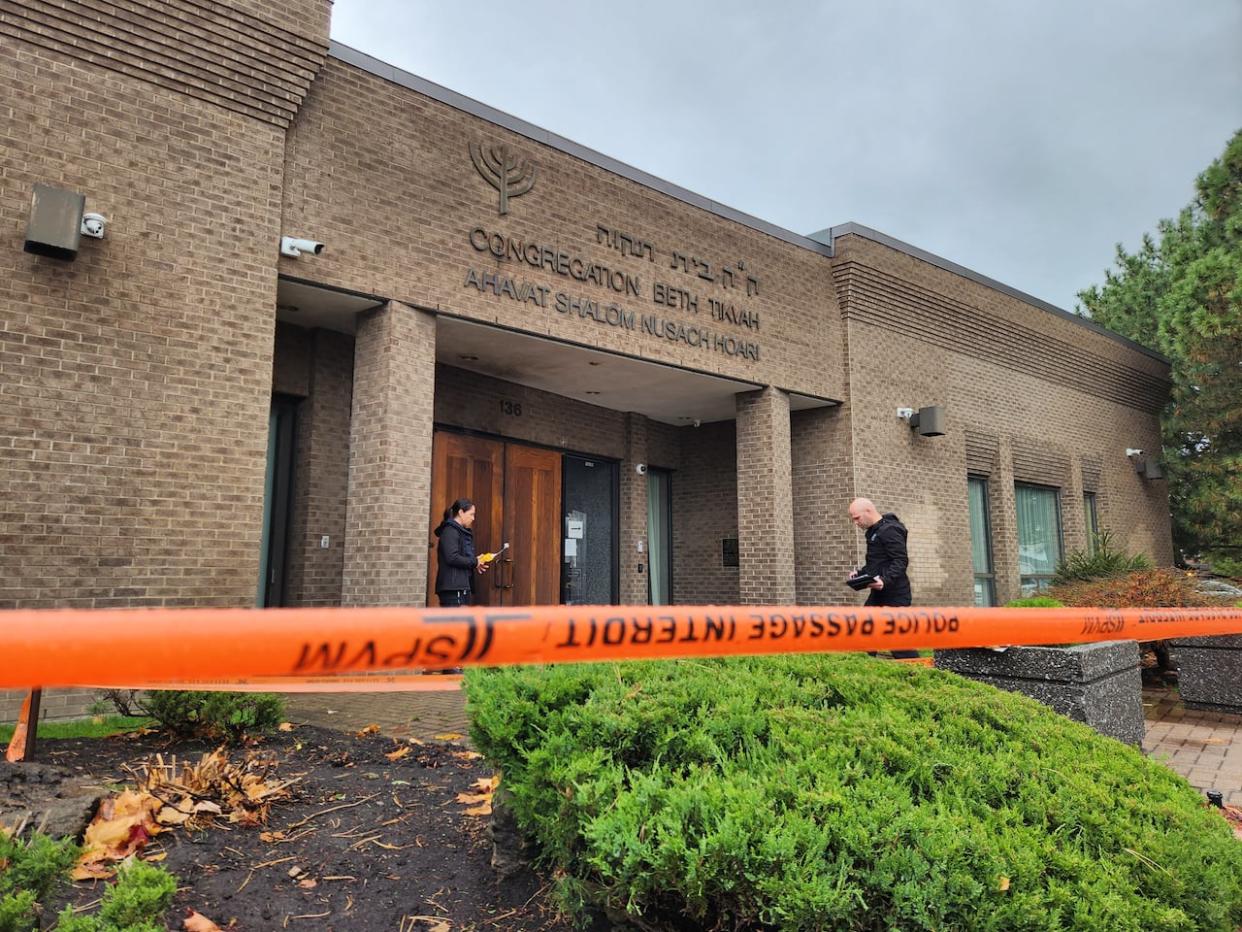Number of antisemitic incidents reached record high in 2023, says B'nai Brith Canada audit

B'nai Brith Canada has released its Annual Audit of Antisemitic Incidents that found the number of antisemitic incidents in the country more than doubled from 2022 to 2023 and has now reached record heights.
"If a physical barometer did in fact exist, the reading for 2023 would be off the chart," Richard Robertson, the group's director of policy and research, said in Ottawa on Monday, which is also Holocaust Remembrance Day, or Yom HaShoah.
B'nai Brith, a Jewish advocacy organization, said that between Jan. 1, 2023 and Dec. 31, 2023, it logged 5,791 incidents of antisemitism, surpassing the previous record of 2,799 reported in 2021.
Robertson said what was particularly concerning was the 208 per cent increase in the number of violent incidents, with 77 incidents recorded last year compared with 25 in 2022.
"The systemic nature of the antisemitism has forced Canadian Jews to question the continued vitality of the nation's Jewish communities," he said.
Robertson said that recent conflicts in Israel, first in May and June and then beginning on Oct. 7 of last year, "make it abundantly clear: When there is unrest in Israel, Jewish Canadians suffer unduly."
About 1,200 people were killed in the Hamas-led attacks on southern Israel on Oct. 7 and about 250 people were taken hostage, according to Israeli figures. More than 34,000 Palestinians in Gaza have been killed during Israel's military response since then, health officials in the territory say.
Robertson said that antisemitic incidents were also driven by the invitation to Parliament of Yaroslav Hunka, a 98-year-old Ukrainian Canadian who served in the Nazi SS Galizien formation during the Second World War.
Hunka was invited to sit in the gallery in September by then-House Speaker Anthony Rota for Ukrainian President Volodymyr Zelenskyy's address to Parliament.
At the event Rota introduced Hunka as a "Ukrainian hero" and a "Canadian hero," prompting a standing ovation in the House of Commons. Rota later stepped down from the Speaker's chair when Hunka's Nazi history came to light.
AI used to promote antisemitism
B'nai Brith Canada said it recorded a rise in antisemitic incidents across Canadian society and by a wide variety of actors, including the far right, the alt-left and "those acting at the behest of foreign actors."
The incidents the group says it recorded include: the firebombing of a synagogue and Jewish community centre in Montreal; eggs being thrown at a Holocaust Memorial Monument in Calgary; a Jewish student being assaulted in an antisemitic attack in B.C.'s Lower Mainland; and a rise in antisemitic graffiti where messages such as "Kill the Jews" were written in public spaces.
B'nai Brith also said in a statement that artificial intelligence (AI) technology has been used to "to create antisemitic propaganda and materials."
David Matas, B'nai Brith's chief legal counsel, said his organization would be making submissions to Parliament regarding the forthcoming online harms bill, saying that provisions within the proposed legislation need to be strengthened to combat the threat posed by AI.
"Artificial Intelligence, like a lot of technologies, is both a benefit and a harm," Matas said Monday. "With each new technology, as we come to appreciate the benefit, we have to put in the safeguards against the harm, and we have not done that yet."
Liberal MP Marco Mendicino, a member of the Canada-Israel Interparliamentary Group who attended the press conference, defended the bill but said the fight against antisemitism must start much earlier.
"The online harms legislation does make references to deepfakes, and this is probably the most disconcerting aspect of artificial intelligence," he said.
Mendicino said it is "equally important, if not more important, to ensure that we are educating young Canadians about the Holocaust and what antisemitism looks like today in the 21 century."
Conservative co-deputy leader Melissa Lantsman, who is also a member of the Canada-Israel Interparliamentary Group and was at the event to express her party's support, dismissed online harms legislation as a solution.
"We are not going to solve this by criminalizing speech, particularly having a government decide what you can say and see on the internet," she said.
"Where the focus needs to be after this report must be in making sure that the physical security of institutions, of synagogues, of schools, of businesses of people in the streets who find themselves in the middle of vile, hateful demonstrations, are kept safe," she said.


